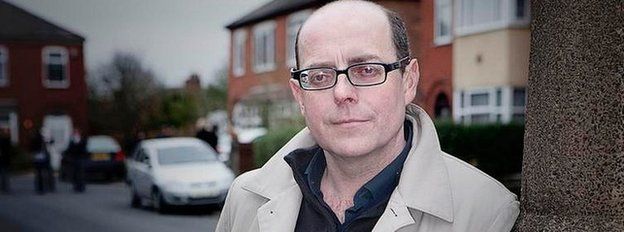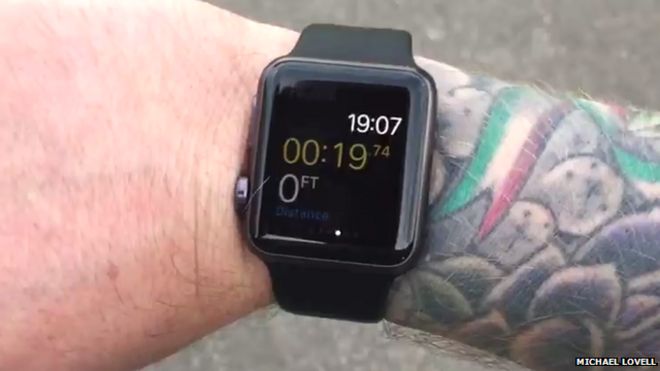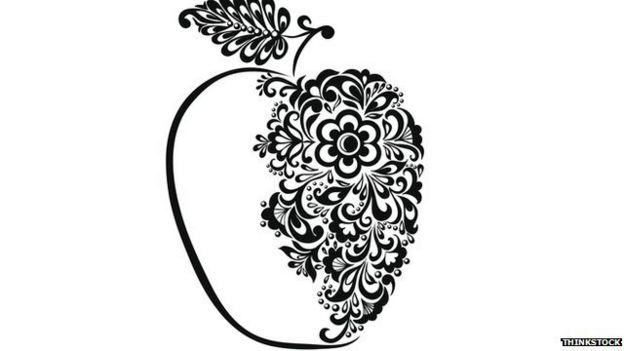- 5 hours ago
- Asia
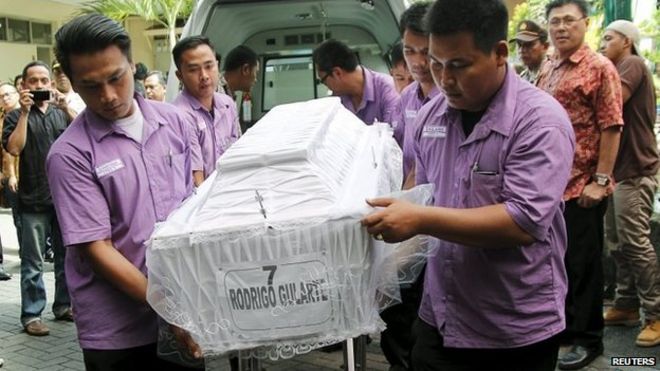
A Brazilian man executed in Indonesia for drug smuggling did not know that he was going to die, says his priest.
Father Charlie Burrows has said that Rodrigo Gularte was hearing voices and did not understand that he was to be shot by firing squad until the end.
Gularte had been diagnosed with paranoid schizophrenia and bipolar disorder.
Seven foreigners and one Indonesian were executed on Wednesday, sparking a diplomatic outcry.
Hearing voices
Father Charlie Burrows said he had tried to prepare Gularte for his execution but that the Brazilian had not realised what was happening to him until his final moments.
"With him, these voices were very real," Father Burrows told BBC Radio 4's PM programme. "He said 'No, I'm not going to be executed, I'm going to Brazil in a year's time.
"I thought he knew what was happening, but when they took him from the cells and the wardens handed him over to police, he turned to me and said 'Father, am I going to be executed?'"

Hugo Bachega, BBC Brasil
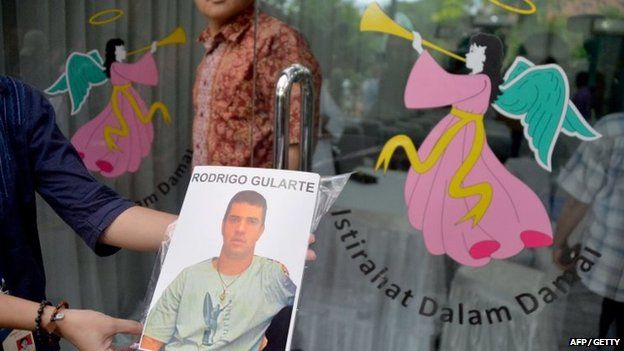
One of Gularte's last requests was that he be buried in Brazil so that "if he was resuscitated" he would be close to his family, a Brazilian diplomat who met him told the BBC.
The diplomat said that this was further evidence of Gularte's poor mental health.
A cousin who visited him regularly in prison said that Gularte was delusional.
She said his favourite topics were "his past lives in Egypt and other surreal stories that never happened".
Gularte claimed that the water and food at the prison were contaminated and was constantly seen talking to walls and ghosts, the cousin said.

Ricky Gunawan, Gularte's Indonesian lawyer, told the BBC that his execution was "outrageous".
"Indonesia has closed its eyes and ears and just wanted to execute him regardless of the plausible evidences we had to avoid the execution."
Brazil had asked the Indonesian government to spare Gularte on the grounds that he was severely mentally ill.
'Deep regret'
He was the second Brazilian to be executed for drug smuggling in Indonesia in four months.
Earlier, Brazil described the latest execution as "a serious event in the relations between the two countries".
Gularte, 42, was arrested in 2004 for trying to smuggle cocaine into Indonesia hidden in surfing gear.
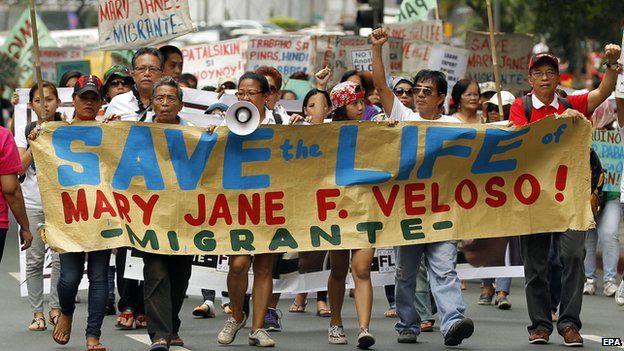
Wednesday's executions have been heavily criticised by the international community.
UN Secretary-General Ban Ki-moon expressed "deep regret" over the incident.
In a statement, Mr Ban said the death penalty had "no place in the 21st Century" and urged Indonesia to spare all other death row prisoners.
Among those killed were two Australian men - Andrew Chan and Myuran Sukumaran.
Australia, a key ally of Indonesia, has recalled its ambassador in protest.
Nigeria has also expressed "deep disappointment" at the execution of four of its nationals.

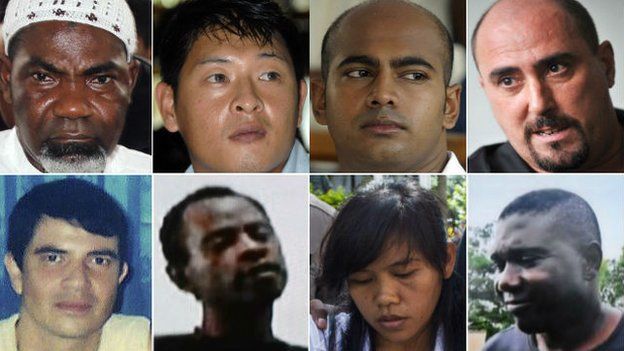
- Australians Myuran Sukumaran and Andrew Chan
- Ghanaian Martin Anderson
- Indonesian Zainal Abidin bin Mgs Mahmud Badarudin
- Nigerians Raheem Agbaje Salami, Sylvester Obiekwe Nwolise, Okwudili Oyatanze and Martin Anderson (originally reported to be Ghanaian)
- Brazilian Rodrigo Gularte
- Frenchman Serge Areski Atlaoui and Filipina Mary Jane Fiesta Veloso were spared as they have ongoing appeals

There were celebrations in the Philippines, however, after Filipina Mary Jane Veloso's execution was postponed at the last minute.
She has been allowed to testify in the case of the woman who she has accused of planting heroin in her luggage.
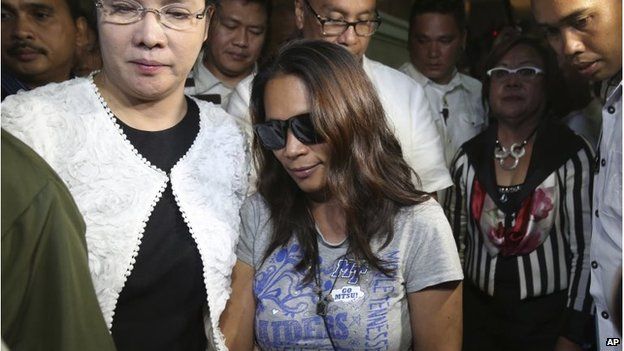
A French man, Serge Areski Atlaoui, also remains on death row. He has an outstanding legal complaint over his request for clemency.
Indonesia says it takes a hard line because of the country's own drugs problem - 33 Indonesians die every day as a result of drugs, according to Indonesia's National Narcotics Agency.
The country has some of the toughest drug laws in the world and ended a four-year moratorium on executions in 2013.

